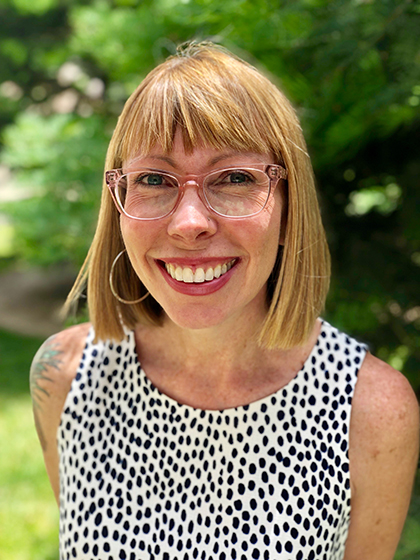Voices of U of U Health
Educators to Coaches: Tools for Better Medical Education
Coaching asks. Advising tells. Mentorship shows.
Coaching encourages spending more time probing, listening, and asking questions. These are all things we want our educators and students to master in the new Mission-Driven MD Program.
To prepare faculty, our latest Core Educator Retreat centered around coaching. We hope you use the following lessons as tools to become innovative, compassionate, and purposeful coaches to all our students.
What Can We Learn from Coaching Basketball?
Lynne Roberts, head coach of the University of Utah women’s basketball team, is entering her ninth season. She is the reigning Pac-12 coach of the year. To get an expert’s take on coaching, we invited her to our retreat.
Roberts talked to us about the challenges and joys of coaching Gen Z. Her biggest takeaway?
“YOU must adapt. The coaches. Students will always be younger than you, and you, the coach, must learn how to be more flexible. Cater to them. Ask yourselves, ‘What can I learn from them?’ That will make your program better.”
With Lynne’s advice in mind, below are some ideas and tools to help you become a better coach.

The Learner-Centered Coach
Meg Wolf, MD, MHPE, keynote speaker from the University of Michigan, spoke about learner-centered coaching. When we use these skills, we help students become lifelong learners.
A learner-centered coach is:
- Invested
- Encouraging
- Affirming
- Accessible
- Reliable
- A skilled communicator
- Trusted
To build these attributes, Wolf recommends the following:
- Stop being an expert: Coaching is a relationship; stop telling or finding solutions FOR the students.
- Ask questions: To make your questions more powerful, ask “What?” and “How?” questions. “Why?” questions can put people in a defensive mode.
- Practice mindful listening: Words are only one part of how we communicate. Listen to tone, body language, eye contact, etc.
- Utilize reflections: After they speak, reflect what you heard back to them.
To be the best coach possible, Wolf suggests adopting a coaching method. No one method is better than the other, and you may find that certain methods work better with different students.
- THE GROW Model: Goal, Reality, Options, Way Forward
- 5-D Appreciative Inquiry: Focus on the positive to identify what is working, and use it to plan for the future.
- WOOP technique: Wish, Outcome, Obstacles, Plan
Fostering Reflection in the Mission-Driven Program

Unreflective doing dominates medicine. We get good grades, get through residency, and then get through patients. Using reflection in our medical education will help to us move from lock-step routine into a growth mindset.
Research has shown that reflection develops complexity, metacognition, and knowledge retrieval. To build reflection into your teaching, use the Four Dimensions of Reflection:
- Prompt: Develop a question you want learners to reflect on.
- Medium: Where are learners reflecting? (Ex: MURAL, shared Google doc, notebook, Canvas discussion)
- Degree of sharing: Is there an audience? Are they sharing with others? Is this a reflection on of solitude?
- Timing: Will this take place in real-time or after the lesson?
Non-reflective educators will not make reflective students. I invite all faculty to think of ways they can bring reflection into medical education and their own lives. You are learners too.
Addressing Microaggressions in Academic Health
The “micro” in microaggression does not reflect the impact of the statement, but rather the subtlety of it. Here are a few examples of microaggressions:
- “Your name, it’s different. You’re not from here, are you?”
- “You are so smart, why didn’t you become a nurse?”
- “You are so well spoken.”
- “She is so exotic looking.”
What we want our educators to know is that microaggressions do exist, that they cause harm, and that you can interrupt them. To learn more about the harm microaggressions cause, we invite you to watch this video.

Looking Forward
As we begin the Mission-Driven MD Program, I hope faculty and staff will use these tools to set themselves up for successful, meaningful coaching relationships. Take Coach Roberts’ advice to adapt and meet the students where they are. If we do that, we will build a strong future of bright, compassionate, and reflective physicians.
Our retreats have one goal: to inspire, inform, and connect. I encourage all who did not attend this June session to look out for our next retreat in early 2024.
